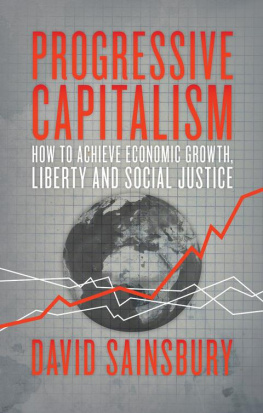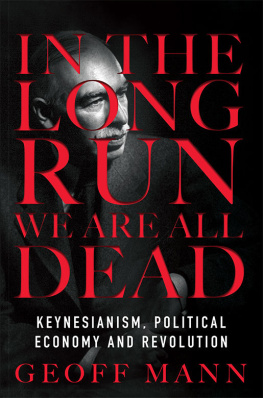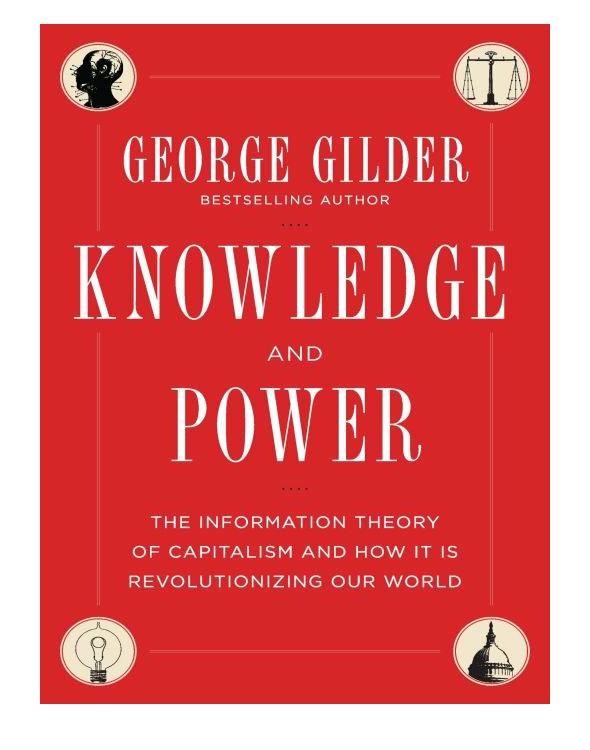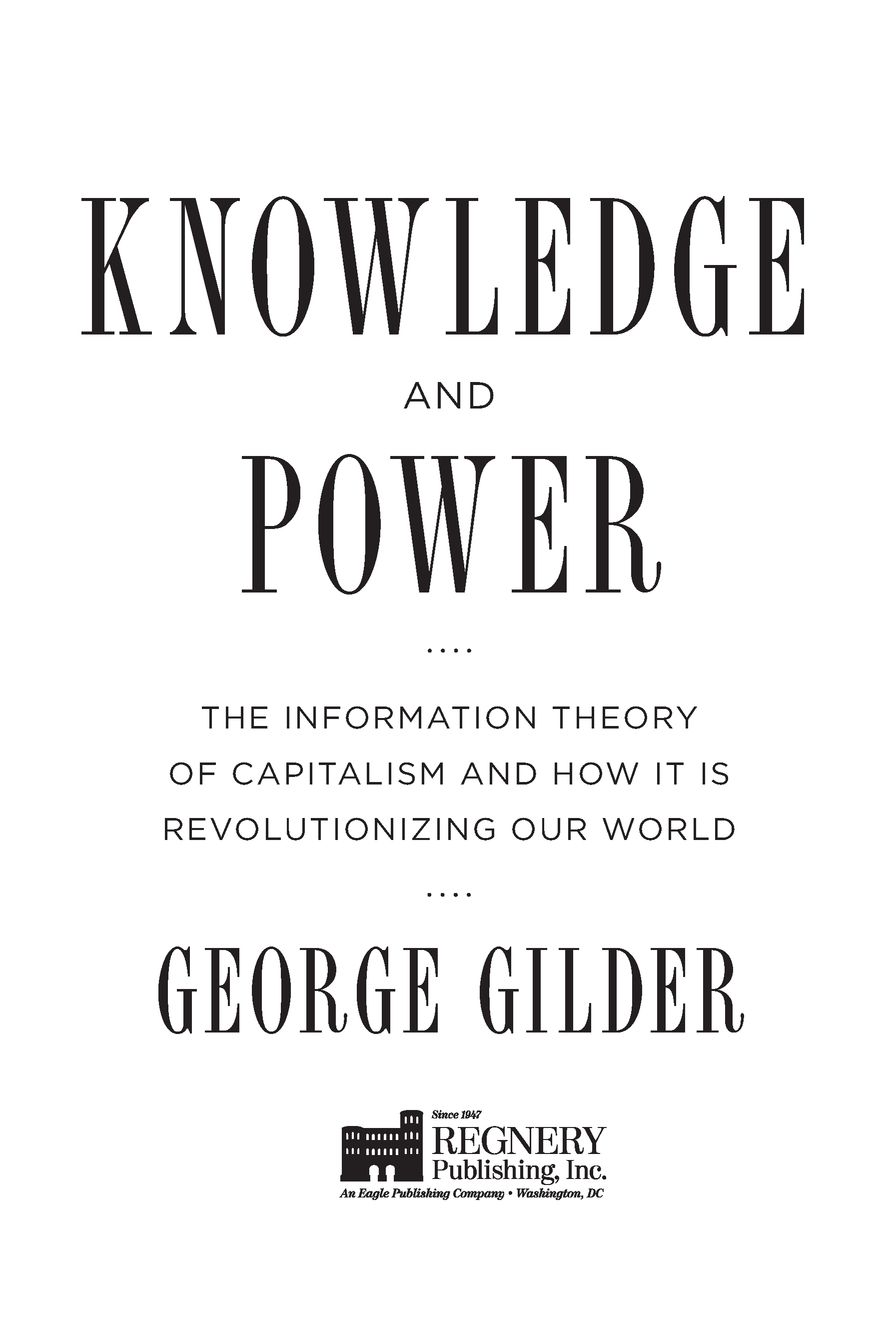Table of Contents
For David Rockefeller, Ph.D. in economics,
Hayek tutee, who taught me the limits of knowledge and power
and the valor of virtue
While market economies are often thought of as money economies, they are still more so knowledge economies. Economic transactions are purchases and sales of knowledge.
After all, the cavemen had the same natural resources at their disposal as we have today. We are all in the business of buying and selling knowledge from one another, because we are each so profoundly ignorant of what it takes to complete the whole process of which we are a part.
How could we have gone so wrong?
The short answer is that power trumps knowledge.
THOMAS SOWELL, Knowledge and Decisions, 1979 (P. 47),
AND Basic Economics, 2007 (P. 424)
Life is plastic, creative! How can we build this out of static, eternal, perfect mathematics? We shall use post-modern math, the mathematics that comes after Gdel, 1931, and Turing, 1936, open not closed math, the math of creativity.
GREGORY CHAITIN, Proving Darwin, 2012 (P. 14)
Foreword
A Venture Investor from Bell Labs Channels the Noise and the Knowledge
I GET OFF THE GREEN Number 5 train at the Wall Street stop as Ive done a million times before. It could be this year or years ago. It doesnt matter. I carefully shuffle out with the pack of humanity, half in suits, the other half wearing bike messenger bags; make my way out through the turnstiles; and, shoulder to shoulder with people in a hurry, slip and slide up the litter-strewn stairs onto the Street.
The sun is bright, piercing. You can see everything, but none of it comes into focus. Im instead distracted by the racket. Cars honking, jack hammers rattling away, a guy selling the New York Post going on about the latest sensational Twittered sex crime. Trucks roar by me. Subways screech beneath me. An ambulance with sirens blaring goes up on the sidewalk to get around some construction. Bad musicsomeone rapping Turn it up! Bring the Noiseis blaring from a Starbucks that turns out to have no restroom. My head is spinning. I can hardly hear myself think.
But underneath all that noise, I hear a sound, sort of a thub-dub, thub-dub, a relentless reggae beat, sometimes loud, sometimes soft, faster, slower, but the pulse is always there. Is it a heartbeat, the predictable rhythm of life? Or does it bear a signal, a difference, a delta of news? The precious modulation of a wave of new creativity in the channels of the economy?
Ive got five hundred large of other peoples money to invest. I wont lose any of your capital and Ill find the next Microsoft, I told them in 1995. What the hell was I thinking? Its so loud down here its hard to make sense of anything. Every story sounds good and every stock looks like a bargainbut there are so many stories, they drown each other out. Too many stories essentially merge into one endless market oscillationa random motion through time that will deceive most technical analysts who take it for a signal and will be left gasping and grasping for handfuls of noise.
I think Im different. Ive got alpha, babywhich in Wall Streetspeak means I think I can generate excess returns over the market. I think I can find the profits of surprise, the yield of real knowledge. Everyone says that, of course, but most investors are all betajust volatility, just the random motion of the surf. When markets go up the beta warriors outperform, and when markets go down they get killed.
To generate alpha, I need help, direction, signposts, analysts, and sometimes even brandy-toting salesmen. But about the only pointer in view is George Washingtons outstretched arm at Wall and Broad, aiming across the street to the New York Stock Exchangealmost as a warning to watch out for those guys in funny-colored blazers. On the other corner is 23 Wall Street, the J. P. Morgan headquarters bombed by anarchists in 1920. Now they blow these banks up from the insidewith combustible illusions of alpha.
Ive got to put that money to work, buy stocks that go up five to ten times, and prove that my alpha is real. In this book, and in Claude Shannons classic model that it describes, alpha goes under the name of entropy. But its essentially the same thing. It is the unanticipated signal, the upside surprise, the unexpected return, the messages among the noise on the Street. The predictable returns are already in prices, in interest rates. I have to achieve upside surprises that are not implicit in current prices and I have to get them not merely today or tomorrow, but month by month, year by year. And I have to hedge them with shorts of stocks that are overblown and going down faster than the Titanic. Simple enough, right? I wish.
Back on the subway this morning, I was channeling Larry, a guy in a leisure suit who ran go-go money, as we used to call it, back in 1973. Ah, he tells me, those were the days and daze. A White Weld institutional salesman would call me every morning at nine with the early word on what his analysts were saying on Polaroid or Xerox or Philip Morris. Trading cost seventy-five cents a share, but who cares, there were only fifty stocks that mattered, the Nifty Fifty, and you just bought em, never sold. Maybe Id get some ideas from the Heard on the Street in the Journal, or maybe Inside Wall Street from Business Week.
Unfortunately, the Nifty Fifty melted into a worthless heap, and Vanguard, John Bogles pioneering new fund, rose from the ashes. Propelled by a Big Bang of market deregulation, negotiated commissions, and lower transaction costs, Vanguard back in 1975 figured that alpha was a myth, that no mere mortals could beat the market, so they indexed the whole damn thing. Buying a Vanguard fund, you merely bought a statistical sample of the market. It was like driving all the knowledge out of prices. Danny Noonan in Caddy Shack was told to be the ball; Vanguard told us to be the market. But if we are the market, we do not shape it; we are just bounced and dribbled around. Shannon, the ultimate alpha man of investing, as we learn in this book, would not have been amused.
Twenty-five years later, much of the market is mindlessly indexed. That means it is all beta. The knowledge is leaching away in the surf of noise and rapid trading. Computers in, humans out; this is classic 1970s sci-fi made all too real. A scream from a homeless man playing Angry Birds on his iPhone ends my subway sance with the wisdom of the 1970s.
An index is the market. Its a carrier, a channel, as defined mathematically by Shannon at Bell Labs in his seminal work on information theory. An index can yield only the predictable market return, mostly devoid of the profits of creativity and innovation, which largely come from new companies outside the index. I had to beat the indexesby a lot. That means I needed knowledge. Riding on the channel, knowledge portends deformation of the mean. It is signaled by surprise, upside and downside, but it is not realized until the surprisethe informationis understood.
As the information revolution described in this book began to take off, I had an advantage. I started my career at Bell Labs, thirty-five years after Shannon. On your first day there, you are issued a nine-by-twelve brown leatherette bag with a Bell logo in the lower corner. There were guards at every entrance and exit making sure employees didnt, uh, liberate equipment from the Labs. But the rule was that the guards would not search your Bell Bag.


![George Gilder - Men and Marriage [Sexual Suicide]](/uploads/posts/book/87550/thumbs/george-gilder-men-and-marriage-sexual-suicide.jpg)







